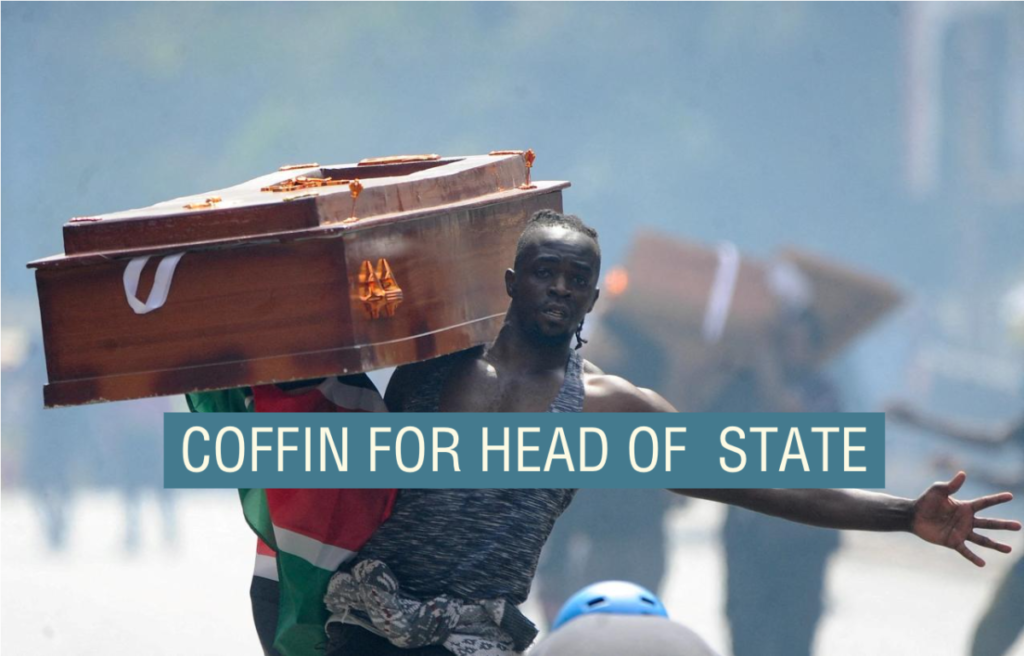The news
NAIROBI — The Kenyan government has raised concerns about the risks associated with the use of artificial intelligence (AI) as youth-led, anti-government protests continue across the country. Protesters have made creative use of AI and digital tools in recent weeks to take on the political elite as part of the nationwide demonstrations, which were sparked by the now-scrapped Finance Bill 2024 with a series of unpopular tax hikes.
Commonly used AI tools developed to support the protests include: Corrupt politicians GPTa chatbot that exposes corruption cases involving Kenyan politicians. Another is the GPT Financial Billwhich helps analyze the controversial bill and its potential impact on prices. The chatbot also shares phone numbers of lawmakers so that their constituents can share their concerns.
Protesters also contributed to and shared databases of companies owned by politicians that have faced boycotts and attacks, creating another chatbot with their contributions to parliamentary debates.
Knowing more
The largely Gen Z and millennial protesters now calling for the president’s resignation began organizing against the Finance Bill on TikTok and X before taking to the streets. They continue to use the social media apps’ features, including spaces and livestreams, to coordinate and mobilize protests.
The protesters have also used these platforms to raise money for medical bills and funeral expenses for injured and killed protesters. An online fundraiser run by activist and journalist Hanifa Farsafi, one of the protest’s key figures, had 29.8 million Kenyan shilling ($231,906) from over 34,000 people on Wednesday night.
Lesser-known apps are also gaining traction in Kenya, such as Zello, which protesters use to turn their phones into walkie-talkies. It helps them quickly share information, including police movements during demonstrations.
Martin’s vision
AI is a relatively new tool for both governments and opposing political actors on the continent. However, Kenya’s young protesters are particularly well-equipped to use their skills against the government. The country has one of the highest developer populations on the continent and a large tech ecosystem. Social media also provides platforms for youth to mobilize around issues and plan civic actions, including protests.
The AI tools have in many cases helped Kenyans understand the potential impact of the Finance Bill, turning the jargon of legislation into actionable information for many protesters. It’s just one way AI is shaping political action in Africa. The tech-enabled solidarity has been evident across professions, including young medics who have independently organised free medical camps for protesters, and the Law Society of Kenya (LSK) which has provided legal aid to protesters and challenged police kidnappings and excessive use of force.
“Everyone is just doing what they can,” Emmanuel Musyoka, a protester in Nairobi, told Semafor Africa. “We’ve had boda boda (motorcycle taxi) riders bringing water and giving free rides; graphic designers making posters.”
Government concerns about AI persist as a national AI strategy is developed, which is seen as a precursor to the introduction of a regulatory framework for AI in Kenya.
Room for disagreement
In a communiqué to ambassadors in Nairobi this week about the protests and the government’s response, Kenyan Foreign Minister Musalia Mudavadi on Tuesday, July 2, expressed concerns about the use of AI and disinformation.
“The misuse of internet space continues to fuel national and global instability and fuel increasingly opportunistic cybercrime,” he said. “The World Economic Forum’s Global Risks Report 2024 admits that the greatest near-term global risk comes from misinformation and disinformation, “largely driven by the potential of AI, in the hands of malicious actors, to flood global information systems with false narratives.”
Remarkable
-
Kenyan celebrities and social media influencers have suspended the country’s largest mobile phone company over alleged collaboration with the government to censor protests by, among other things, slowing down the internet.

